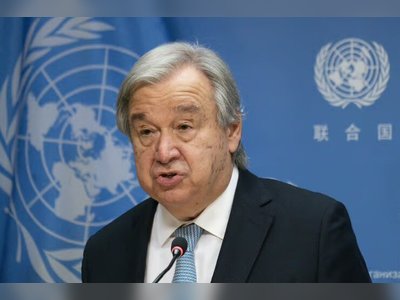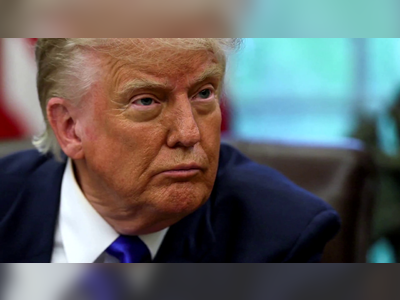
Hungarian Government Implements Price Cap Amid Rising Inflation
As inflation affects food prices, the Hungarian government imposes a margin cap on essential goods.
The Hungarian government has taken decisive action in response to an upward trend in inflation that has persisted for five consecutive months.
In January 2023, average consumer prices surpassed those of January 2022 by 5.5%, followed by a 5.6% increase in February.
The inflation rate rose by 0.8% in February alone, with food prices climbing by 1.2% in the same month.
To address the impact of rising food costs on the population, Prime Minister Viktor Orbán announced on March 11 that the government would implement a price margin cap.
"Retailers' offers fell short of our expectations, and therefore we had to decide to introduce measures for trade.
Starting in mid-March, the margin on thirty essential food items cannot exceed 10%," stated Orbán.
This margin cap encompasses 30 product categories, representing one-quarter of food items available in stores and constituting 6% of the food inflation basket.
The margin regulation means that any margin above 10% must be reduced; thus, if a product had a 4% margin, it would be expected to be frozen at that level.
The measure is effective from March 17 to May 31, 2023.
Initial reports suggest a decrease in inflationary pressures, as the margin cap's effects began to be felt in March, albeit partially, due to its mid-month implementation.
Geza Sebestyén, a professor at Corvinus University of Budapest and head of the MCC Economic Policy Workshop, indicated that the inflation rate could approach 5% for March.
The Hungarian Forint has also strengthened, trading 1% higher in March compared to February and 3% stronger than in January.
Orbán's appointment of former Finance Minister Mihály Varga as head of the Hungarian National Bank, effective from March 4, has led to the Forint reaching a five-month peak.
Varga affirmed that the primary goal of the National Bank is to maintain price stability and pledged to combat inflation vigorously.
The implementation of the margin cap has reportedly yielded immediate price reductions, with nearly 1,000 products seeing average price decreases of over 15%.
However, it is anticipated that the full impact will not be reflected in the March inflation data due to the timing of price surveys conducted by the Hungarian Central Statistical Office.
Furthermore, national retail sales increased by 3.3% in February compared to the same month last year, with a 4% uptick in the first two months of 2023 when accounting for calendar effects.
The government expects retail sales to range between 5% and 10% in the third quarter of this year.
Economic Minister Márton Nagy labeled inflation as a "public enemy" and emphasized its impact on sectors such as food, banking, and telecommunications.
Nagy also indicated that there is a strong possibility of introducing a price cap for banking service fees, with any new account fees expected to align with those in effect on December 31. Discussions are ongoing with telecommunications companies regarding price reductions, although government intervention may be less likely in this sector.
As of now, 884 products have experienced price cuts, while 70 have seen increases due to the conclusion of prior promotional actions.
Projected inflation rates for March suggest it may drop below 5%, with food inflation stabilizing around 7%.
The margin cap will remain in place until the end of May, leading to expectations of continued monitoring of retail pricing practices by the government, potentially enhancing price competitiveness post-regulation.
By the end of March, significant price reductions have been noted, with some products experiencing up to a 40% decrease.
The average price of all items under the margin cap has shrunk by 17.7%.
Analysts point out that a 30% price reduction implies that retailers were applying margins of at least 50% prior to the cap's introduction.
The margin regulation ensures that retail units do not incur losses on the specified products, thus securing their availability on store shelves.
The apparent decrease in inflation could positively impact the purchasing power of wages, and may also lower interest rates in the long run, influencing borrowing and fostering economic growth and job creation.
In January 2023, average consumer prices surpassed those of January 2022 by 5.5%, followed by a 5.6% increase in February.
The inflation rate rose by 0.8% in February alone, with food prices climbing by 1.2% in the same month.
To address the impact of rising food costs on the population, Prime Minister Viktor Orbán announced on March 11 that the government would implement a price margin cap.
"Retailers' offers fell short of our expectations, and therefore we had to decide to introduce measures for trade.
Starting in mid-March, the margin on thirty essential food items cannot exceed 10%," stated Orbán.
This margin cap encompasses 30 product categories, representing one-quarter of food items available in stores and constituting 6% of the food inflation basket.
The margin regulation means that any margin above 10% must be reduced; thus, if a product had a 4% margin, it would be expected to be frozen at that level.
The measure is effective from March 17 to May 31, 2023.
Initial reports suggest a decrease in inflationary pressures, as the margin cap's effects began to be felt in March, albeit partially, due to its mid-month implementation.
Geza Sebestyén, a professor at Corvinus University of Budapest and head of the MCC Economic Policy Workshop, indicated that the inflation rate could approach 5% for March.
The Hungarian Forint has also strengthened, trading 1% higher in March compared to February and 3% stronger than in January.
Orbán's appointment of former Finance Minister Mihály Varga as head of the Hungarian National Bank, effective from March 4, has led to the Forint reaching a five-month peak.
Varga affirmed that the primary goal of the National Bank is to maintain price stability and pledged to combat inflation vigorously.
The implementation of the margin cap has reportedly yielded immediate price reductions, with nearly 1,000 products seeing average price decreases of over 15%.
However, it is anticipated that the full impact will not be reflected in the March inflation data due to the timing of price surveys conducted by the Hungarian Central Statistical Office.
Furthermore, national retail sales increased by 3.3% in February compared to the same month last year, with a 4% uptick in the first two months of 2023 when accounting for calendar effects.
The government expects retail sales to range between 5% and 10% in the third quarter of this year.
Economic Minister Márton Nagy labeled inflation as a "public enemy" and emphasized its impact on sectors such as food, banking, and telecommunications.
Nagy also indicated that there is a strong possibility of introducing a price cap for banking service fees, with any new account fees expected to align with those in effect on December 31. Discussions are ongoing with telecommunications companies regarding price reductions, although government intervention may be less likely in this sector.
As of now, 884 products have experienced price cuts, while 70 have seen increases due to the conclusion of prior promotional actions.
Projected inflation rates for March suggest it may drop below 5%, with food inflation stabilizing around 7%.
The margin cap will remain in place until the end of May, leading to expectations of continued monitoring of retail pricing practices by the government, potentially enhancing price competitiveness post-regulation.
By the end of March, significant price reductions have been noted, with some products experiencing up to a 40% decrease.
The average price of all items under the margin cap has shrunk by 17.7%.
Analysts point out that a 30% price reduction implies that retailers were applying margins of at least 50% prior to the cap's introduction.
The margin regulation ensures that retail units do not incur losses on the specified products, thus securing their availability on store shelves.
The apparent decrease in inflation could positively impact the purchasing power of wages, and may also lower interest rates in the long run, influencing borrowing and fostering economic growth and job creation.
AI Disclaimer: An advanced artificial intelligence (AI) system generated the content of this page on its own. This innovative technology conducts extensive research from a variety of reliable sources, performs rigorous fact-checking and verification, cleans up and balances biased or manipulated content, and presents a minimal factual summary that is just enough yet essential for you to function as an informed and educated citizen. Please keep in mind, however, that this system is an evolving technology, and as a result, the article may contain accidental inaccuracies or errors. We urge you to help us improve our site by reporting any inaccuracies you find using the "Contact Us" link at the bottom of this page. Your helpful feedback helps us improve our system and deliver more precise content. When you find an article of interest here, please look for the full and extensive coverage of this topic in traditional news sources, as they are written by professional journalists that we try to support, not replace. We appreciate your understanding and assistance.











